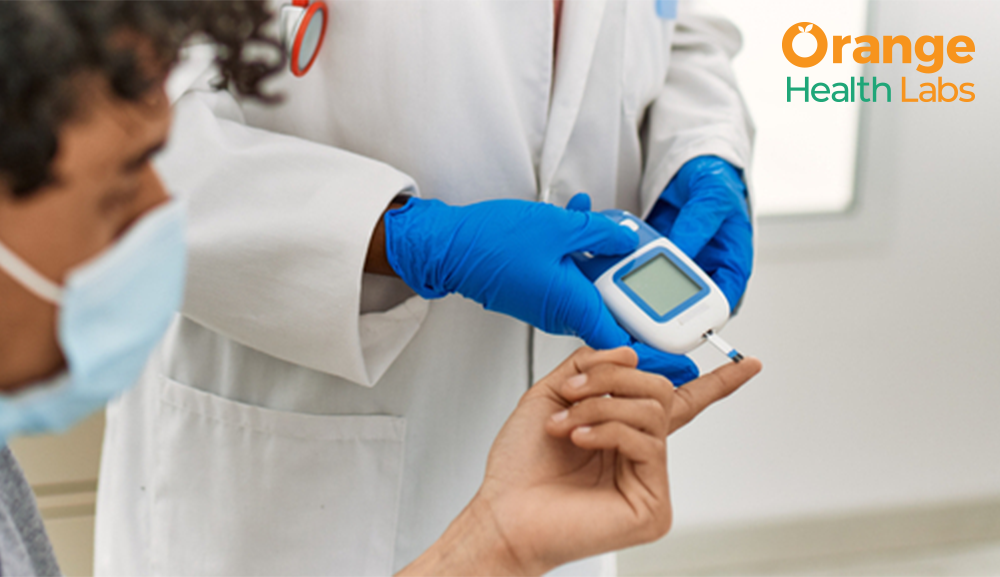Search for tests or checkups
SupportHow Full Body Checkups Aid in Early Disease Detection

With the increase in health problems globally, making sure diseases are found early is important. Identifying diseases early is crucial for getting the best treatment and leads to improved treatment outcomes and higher chances of survival. Public health programs advocate for regular screenings for conditions like cancer, diabetes, and heart disease to facilitate early intervention. This aligns with recommendations from the World Health Organization (WHO), emphasizing the importance of timely disease identification in preventing complications.
Importance of Timely Disease Detection
The increasing prevalence of chronic diseases such as diabetes, heart disease and cancers has shown our susceptibility to health threats originating from several sources. Different stages of preventive health measures need to be employed for effective control of these diseases, early identification being the foremost. The recent COVID-19 pandemic has also highlighted the critical significance of early disease detection. Spotting problems early helps make life better for you as it makes treatments work better, and stops diseases from getting worse. It also means fewer complications and healthier lives in the long run. Plus, finding issues early can save money on treatment costs.
Screening tests included in full body checkups are like tools used to find diseases early on. They also look for signs that you might have a risk of getting a disease by assessing various parameters of your body. Finding these signs can help prevent the occurrence of major diseases as you can initiate lifestyle changes and start treatment right away, which aids in avoiding further health issues.
Comprehensive Health Assessments for Early Disease Detection
A comprehensive health assessment, like a full-body checkup, plays a crucial role in early disease detection and prevention. Here's why it's essential:
- Catching problems early: These check-ups help spot health issues before they get serious, making treatment easier and more effective.
- Preventing chronic diseases: Many serious illnesses, such as diabetes, heart disease, and cancer, can be managed better when caught early. Regular check-ups can identify risk factors for these diseases and help prevent or manage them effectively.
- Peace of mind: Knowing your health status can bring comfort and reassurance. It can also highlight areas where you can make positive changes for better health.
- Personalized care: These assessments allow healthcare providers to tailor a healthcare plan specifically to your needs, considering your health history and other factors.
- Learning about health: Check-ups are a great opportunity to learn more about your health and how to take care of yourself better.
Full body test packages typically include various diagnostic tests aimed at assessing different aspects of health. Some commonly included blood tests are:
- Complete blood count: These analyze blood samples to assess several parameters of your body. A full blood count test is used to check for a lot of different illnesses and infections. It tells your doctor about the different types of cells in your blood, like red cells, white cells, and platelets. An elevated amount of blood cells can indicate some disease.
- Lipid panel: A lipid panel is a usual blood test that doctors do to check for your chance of heart problems. It looks at your cholesterol levels and triglycerides, which are types of fat in your blood. If your lipid test results are higher than normal, it usually poses a risk to the heart.
- Blood sugar: A blood glucose test checks how much sugar is in your blood. Doctors often use this test to see if you might have Type 2 diabetes, which is a common health problem.
- Kidney function test: Kidney function tests see how well your kidneys are doing their job. They check how effectively your kidneys remove waste from your body. These tests can include a blood test, collecting urine for 24 hours, or sometimes both.
- Liver function test: Liver function tests, also known as a liver panel, use a blood sample to measure different things made by your liver.
- Urine analysis: This examines urine samples to detect abnormalities such as urinary tract infections, kidney diseases, diabetes, and other metabolic disorders.
Additional tests like electrocardiogram and echocardiogram can also be done to check the heart's electrical activity, and assess its structure and function for diagnosing heart conditions.
Book a full body checkup in your city: Full Body Checkup in Noida | Full Body Checkup in Bangalore | Full Body Checkup in Mumbai | Full Body Checkup in Hyderabad | Full Body Checkup in Gurgaon | Full Body Checkup in Faridabad | Full Body Checkup in Delhi
Identifying Silent or Asymptomatic Conditions
Asymptomatic diseases are silent killers. It is when you have a condition, such as early-stage high blood pressure or diabetes, but don't show any signs of it. In such instances, comprehensive health assessments are crucial investigative processes aimed at uncovering hiding health issues within the body. They aid in finding issues that don't show any obvious signs or symptoms yet. Detecting these hidden signs early helps mitigate the severity of the disease by enabling prompt treatment initiation, preventing its progression and potential complications.
Targeting All Age Groups
As discussed, regular health check-ups help detect early signs of health issues, improving treatment effectiveness. The frequency of check-ups depends on factors like age, health status, family history, and lifestyle choices however they should be availed by people of all ages. Owing to the poor lifestyle and increasing stress evident in today’s scenario, getting a full body checkup regularly is important for young adults. These checkups help ensure that chronic diseases such as diabetes and blood pressure are detected early, and also assess for conditions associated with hormonal issues or not getting enough nutrients. For children and adolescents also, regular checkups ensure proper growth and development. Elderly individuals benefit significantly from comprehensive checkups as they enable early detection and regular monitoring of age-related health concerns and facilitate timely intervention to prevent complications and maintain quality of life. Spotting health issues early is really important for people with a family history of certain diseases. It helps them take action early to prevent problems and stay healthier. Hence, regular checkups not only promote better health outcomes for all ages but also empower individuals with specific demographics to take proactive steps towards prevention and overall well-being
Modifying Lifestyles Based on Early Detection
Early detection helps you make better choices about how you live. Having knowledge about your medical issues early on aids you in taking prompt steps to ensure a healthier future. This includes lifestyle modification such as eating well, staying active, keeping a healthy weight, avoiding tobacco and too much alcohol, managing stress with relaxation activities, and getting regular check-ups from the doctor. By adopting such measures individuals can significantly improve their health outcomes and enjoy a better quality of life.
Conclusion
Regular full-body checkups play a pivotal role in early disease detection across all age groups, ensuring timely interventions and improved health outcomes. By targeting asymptomatic conditions and emphasizing preventive care, these assessments empower individuals to take control of their health and make informed lifestyle choices. With early detection and positive modifications, you can easily strive towards a healthier and happier life.

The Emotional Journey of Getting an HIV Test: What to Expect

Cholesterol Management & Lipid Profile Test: Debunking Common Myths
